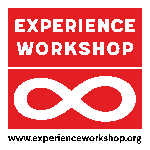Course description
In this course, the Finnish education system is presented with a twin-track approach. On the one hand, we will examine what is at the heart of the system that has become a global brand, i.e. what are the elements that make the Finnish education system what it is. On the other hand, we will examine the elements, methodological approaches and tools that can be applied by the participants in their own educational practice. All this is supported by concrete practical ideas and up-to-date scientific research, accompanied by a visit to local Finnish school. The course content is created by experts of Finnish educational research, teacher education and professional development.
Basic information
⇒ Working language: English (minimum level required: B1)
⇒ Working hours: 30×45 min lessons
⇒ Venue: Jyväskylä, Finland
⇒ Prices:
- 6-day course: 580 EUR (download your 6-day reference programme here)
- 6-day course with special focus “Sustainability” (download your 6-day reference programme here)
⇒ Currently available course dates:
-
- 4-9 May 2026 (6-day course – CONFIRMED) Trainer: Jukka Lehtoranta
- 9-14 November 2026 (6-day course)
- 10-15 May 2027 (6-day course)
- 16-21 August 2027 (6-day course)
Who is this training for?
Objectives and learning outcomes of the course
About the location
Methodology
Reference programme of the 6-day training
Certification awarded
Important to know
*
Who is this training for?
The training is recommended for
- pre-service educators and
- in-service educators,
- school principals and
- education professionals,
who want to learn about the essential elements, pedagogical and organizational background, and good practices of the Finnish education system, which has world-wide high achievements.
⇒ The goal of the course is not simply to share information, but to support participants in adapting the course content for their own educational system, curricula and everyday practices.
Objectives and learning outcomes of the course
Participants will:
- explore the potential of the education system in Finland by developing a deep understanding of its principles, strategies, methodological approaches and tools
- be able to identify the most relevant elements of the above mentioned principles, strategies, approaches and tools in relation of their own teaching practice
- find their own ways to adapt and implement the appropriate approaches and tools in their own classroom
- be able to create their own portfolio and/or lesson plans using a variety of suggested approaches and tools
- become more self-confident in their teaching autonomy and in building trust-based relationships with their students and colleagues
- improve communication skills and soft skills in English and develop language for classroom use and planning
- further develop their professional skills through interacting with colleagues of other nationalities, exchanging ideas, materials and experiences
- be able to build up their international professional network to enhance their motivation in teaching
About the location
The capital of Central Finland, Jyväskylä is the cradle of teacher education, an important pillar of Finland’s prestigious education system. The first teacher training institute in the country was established here at the end of the 19th century, and the University of Jyväskylä has since become a stronghold of Finnish teacher training and methodological education.
Methodology
Supervisor of the course is Ph.D. Kristóf Fenyvesi, senior researcher of University of Jyäskylä. The course is delivered in close cooperation with his invited colleagues. Dr. Fenyvesi’s research interests are overarching the main highlights of the Finnish educational system, such as STEAM (Science, Technology, Engineering, Arts, Mathematics) education, creativity & innovation in learning, trans- and multidisciplinary integration in learning, problem-solving, playfulness, phenomenon-based, experience-oriented, and cooperative approaches in education, hands-on approaches and digital modelling, embodied learning, etc. The training draws on all these approaches and, keeping in mind the principle of learning by doing, always aims to put participants in active situations so that they themselves can learn through experience. The course is a fine result of up-to-date scientific research and evidence-based practice. As part of the training we will give you a comprehensive insight into a Finnish educational institution as well.
Reference programme of the 6-day training (30×45 min lessons)
| Day 1 |
|
||
| Day 2 |
|
||
| Day 3 |
|
||
| Day 4 |
|
||
| Day 5 |
|
||
| Day 6 |
|
||
While keeping in mind the described learning outcomes, some details of the reference programme may change. The course is always adapted to the actual needs and requests of the participants.
Certification awarded
At the end of the course, each participant will be awarded a certificate of attendance, together – if requested – with the Europass Mobility Certificate. Certificates are issued by Experience Workshop on the condition of at least 80% attendance.
Important to know
Minimum number of participants: The course will be realized if at least 10 people register at least 4 weeks before the first training day. You can find the confirmed courses at the top of the page.
For more details read the Terms and Conditions.
